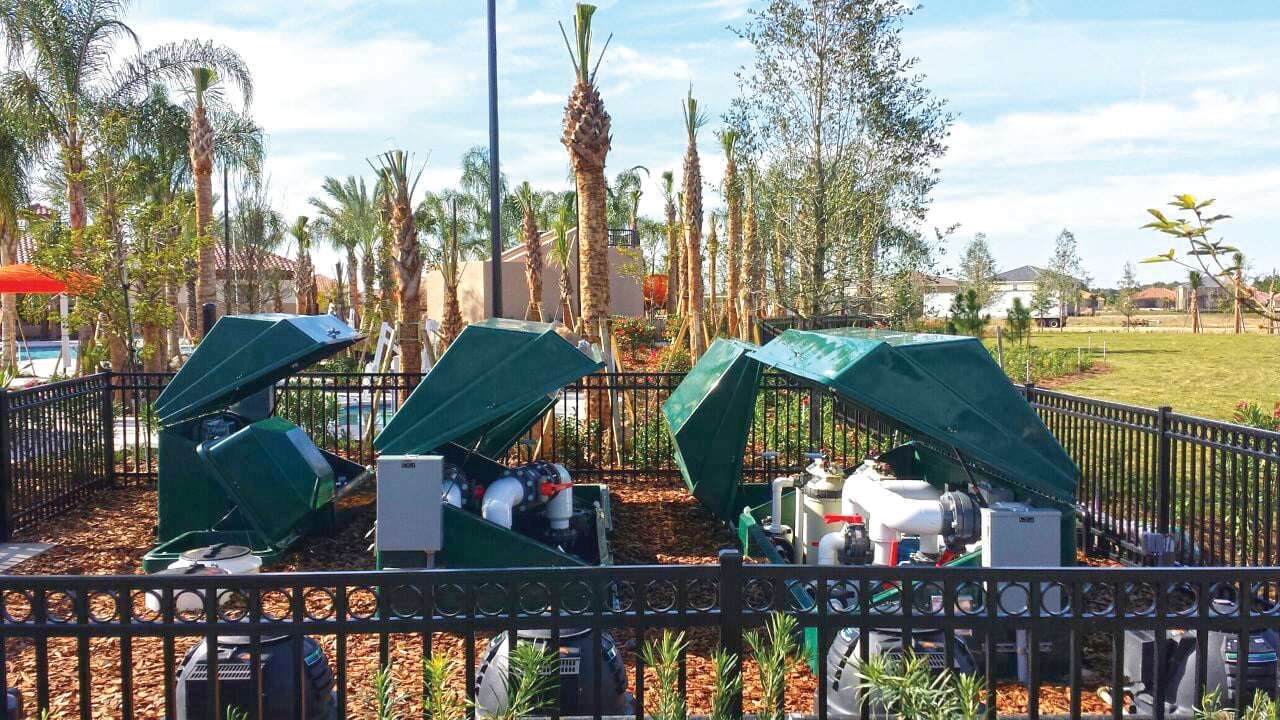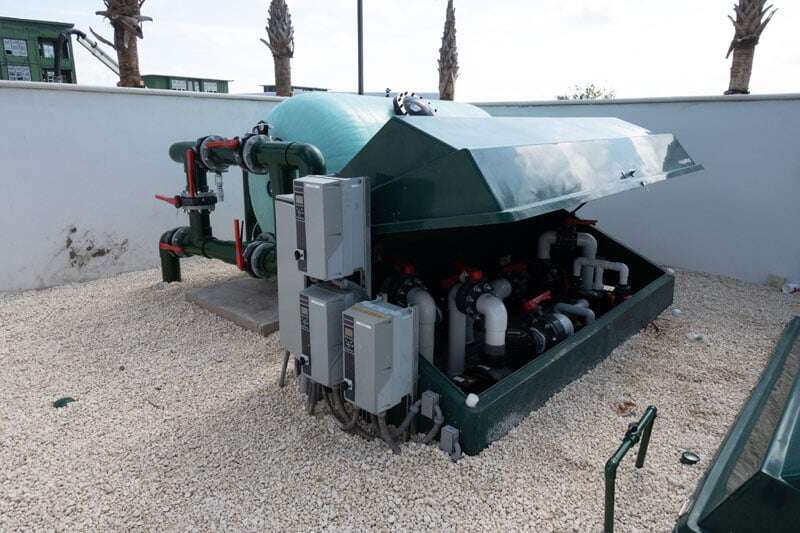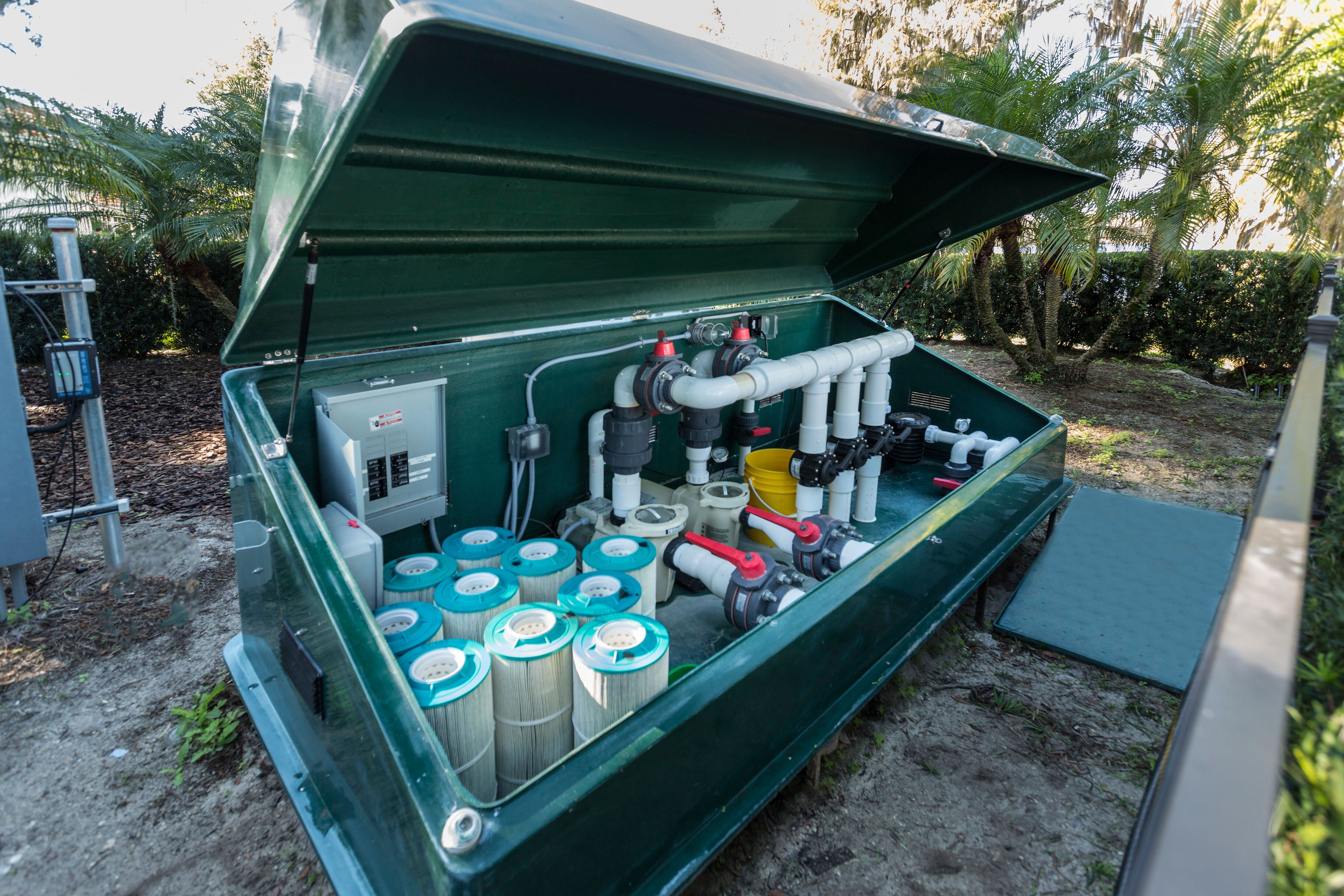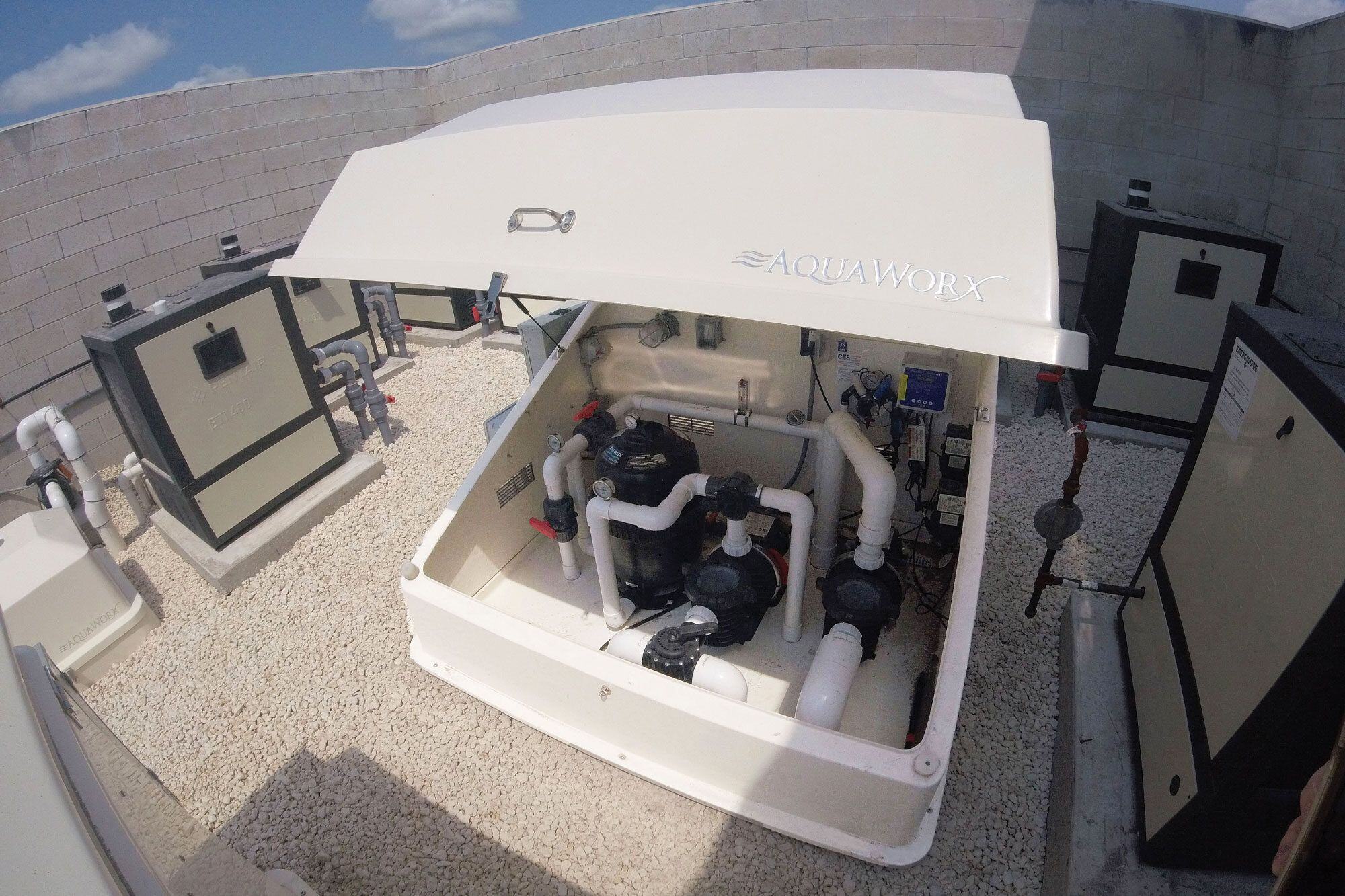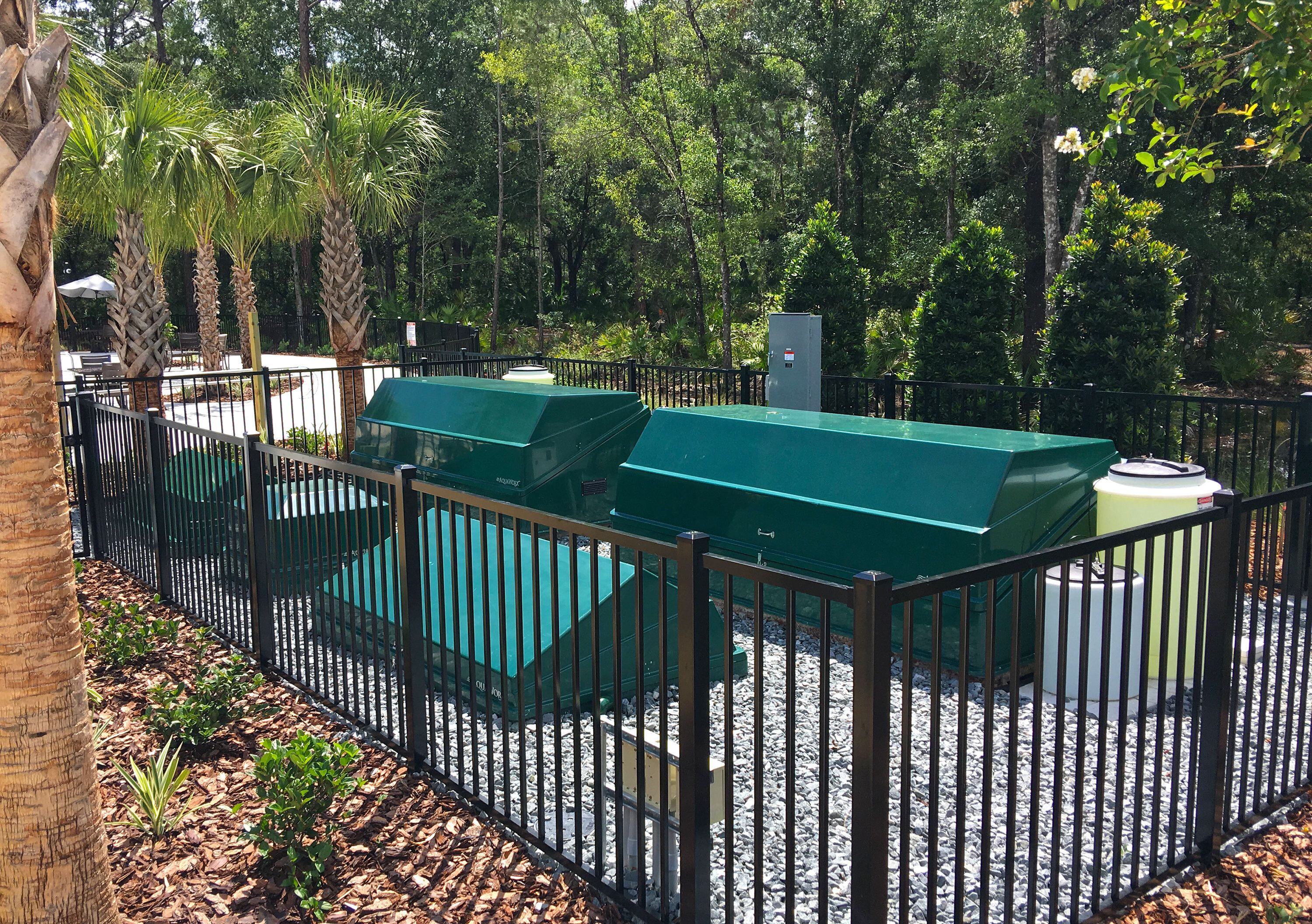Filtration System Filter Comparisons - DE, Sand, and Cartridge
DE Filtration Systems vs. Sand Filtration Systems vs. Cartridge Filtration Systems
When it comes to maintaining a clean and hygienic swimming pool, choosing the right water management solution is crucial. There are three popular pool filter types available for commercial swimming pool filtration systems: DE filters, sand filters, and cartridge filters. Each of these pool filters offers unique features and advantages. In this product comparison, we will evaluate these pool filter types based on their filtration efficiency, maintenance requirements, water conservation, and overall cost-effectiveness.
Filtration Efficiency
DE Filtration:
DE filtration systems are known for their exceptional swimming pool filtration capabilities. They use a thin layer of diatomaceous earth (DE), a fine powder made from fossilized remains of algae-like water plants, to trap impurities better than sand filters or cartridge filters. The diatomaceous earth is coated onto a grid inside the filter housing, ensuring efficient particle removal.
Sand Filtration:
Sand filtration systems use special filter sand as the filtration medium. While they offer good commercial swimming pool filtration, they may not be as effective as DE filters in capturing fine particles.
Cartridge Filtration:
Cartridge filtration systems pass water through a fibrous element, providing excellent commercial swimming pool filtration. They are particularly adept at capturing small debris and contaminants, making them highly efficient.
Maintenance Requirements
Sand filtration system for commercial swimming pool.
DE Filtration:
DE filtration systems and sand filtration systems require periodic backwashing to remove debris from the filter. This backwashing process involves manipulating a valve to reverse the water flow and direct debris-filled water to waste. Additionally, annual grid removal/cleaning is recommended for DE filter systems.
Sand Filtration:
Like DE filtration systems, sand filtration systems also require periodic backwashing to clean debris from the sand bed. However, sand filters only need disassembly every 5-7 years, making them relatively low maintenance.
Cartridge Filtration:
Cartridge filtration systems do not require backwashing, which means they save water and energy. The cleaning process involves disassembling and rinsing the cartridge(s) with a hose, although periodic cartridge replacement is necessary.
Water Conservation
Vacuum cartridge filtration system for a commercial swimming pool.
DE Filtration:
DE filtration systems and sand filtration systems require backwashing, which can consume a significant amount of water. While it is necessary to maintain proper filtration, water conservation might be a concern for some commercial pool owners.
Sand Filtration:
Sand filtration systems also require backwashing, contributing to water wastage. However, their less frequent disassembly offsets some of the water consumption.
Cartridge Filtration:
Cartridge filtration systems do not require backwashing, making them the most water-efficient option. They can save up to 92% of water compared to DE filtration systems and sand filtration systems, which is a significant advantage for sustainable swimming pool management and overall water bill cost savings.
Cost-Effectiveness
DE filtration system for commercial swimming pool.
DE Filtration:
DE filtration systems offer excellent commercial swimming pool filtration with efficient flow and large cleaning capacities. However, they require periodic grid replacements, and the cost of DE filters can add to the overall expenses.
Sand Filtration:
Sand filtration systems provide good filtration and are generally more affordable than DE filters. They are also cost-effective in the long run due to their infrequent disassembly and no need for supplemental media.
Cartridge Filtration:
While cartridge filtration systems may have a higher upfront cost, they offer exceptional filtration, long cleaning cycles, and energy efficiency, resulting in potential cost savings over time. Their reduced water consumption can also translate into lower utility costs.
Which Filtration System is Best for My Facility?
The choice of recirculating filtration packs for commercial swimming pools depends on various factors, including filtration efficiency, maintenance requirements, water conservation goals, and budget considerations.
- Choose a DE filtration system for top-notch swimming pool filtration performance but be prepared for periodic grid cleaning and DE grid replacement costs.
- Opt for a sand filtration system if you seek a cost-effective option with decent swimming pool filtration and less frequent maintenance.
- Consider a cartridge filtration system for excellent filtration, energy efficiency, minimal maintenance, and significant water savings.
Ultimately, the best filter type for your recirculating filtration system will depend on your specific pool's needs and priorities.
Need Assistance with a Commercial Swimming Pool Project?

